Rotorua Electorate
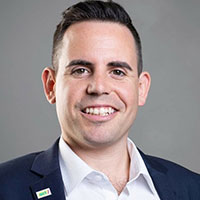
Pete Kirkwood - ACT Party
Representing the ACT Party in the Rotorua electorate is 32-year-old Pete Kirkwood.
Kirkwood, who normally resides in the Papamoa/Te Puke area, is currently self-employed teaching men to communicate better with women and studying psychology at Waikato Uni fulltime.
Favourite things to do outside of politics: Firedancing, teaching communication skills
What motivated you to run in the Rotorua/Waiariki electorate?
To raise the party vote for ACT.
After the excellent rallying of this country to fight COVID-19 watching the government act like frightened children and not proactive leadership led me to discover the ACT Party and the solutions they have for our current crisis. Voting wasn't enough, so I stood up to spread the word, party vote ACT!
What are your top three issues facing the Rotorua electorate and how would you tackle them?
COVID-19 is the magnifying glass on the underlying issues in our society. Everyone is suffering in the wake of this crisis and Labour's Wage Subsidy (which ends the week after the election) and new taxes will not bring prosperity.
We need to lower taxes to make it fairer for hardworking middle and lower class New Zealanders, cut red tape, especially replacing the RMA so businesses can get things done, and develop the world's smartest borders using technology so that money and people can flow through the border but COVID cannot.
What are the top three policies your party would put in place that would directly benefit the people of the Rotorua electorate?
ACT released a five-point-plan to solve these problems back in May, long before anyone else. The plan is fully costed to keep debt low for our future generations, cut taxes right now to make it fair for our lower and middle classes while keeping Kiwis in work and getting our country back in surplus.
Our proposed five-point cut in GST would conclude in June 2021, while our income tax cut will be permanent. By cutting the 30 per cent rate, we make the tax system flatter and fairer, with only three rates - on your first $14,000, you would pay 10.5 per cent.
What is your reaction to the government's response to the COVID-19 crisis? What would you have done differently, if anything?
Disappointment. I'm very disappointed to see empty rhetoric around "fast and early" and a lack of forward planning to handle our economic future, especially for an electorate like Rotorua that has such strong tourism and export sectors like forestry and farming which rely on a smart border to let people, money and trade through while using technology to stop Covid-19 in its tracks.
What are your thoughts on the living wage as opposed to the minimum wage?
ACT's five-point plan for the recovery recommends that with the economy under pressure, increasing the cost of hiring workers through labour regulation is likely to lock young people and others with little experience or few skills out of jobs. We must make it as easy as possible to hire and to get as many people back into work as possible. We would return the minimum wage to its pre-April 2020 level of $17.70 an hour to make hiring and retaining employees more affordable.
What is your stance on the following;
- the cannabis referendum? Let the public decide.
- the End of Life Act? Yes – this was ACT's bill.
- how did/would you have voted in the passing of the Abortion Legislation Act 2020? As a candidate campaigning to increase ACT's party vote only, I am not seeking the electorate vote. ACT's leader David Seymour voted in favour of the bill.

Claire Mahon - Labour Party
Claire is an internationally award-winning former human rights lawyer and has run a consulting firm advising governments and world leaders on housing, health, education, food and work.
She now lives and works in Rotorua and is 42-years-old with strong connections to Rotorua as her family have been farming in the district for generations.
Favourite things to do outside of politics: swimming, painting, cooking
What motivated you to run in the Rotorua/Waiariki electorate?
I'm passionate about Rotorua and its people. Throughout my lifetime I've seen inequality worsen throughout our district, and I want to address this. With Jacinda Ardern's leadership, I see a shift towards leading not only with kindness but with a desire to leave no one behind, and that's something I want for our region. I want to see the people of Rotorua thrive and prosper, and for this to happen we need a strong advocate fighting for what our people need. Personally, after a lifetime helping communities around the world, I wanted to come home and bring my skills and experience back here to serve my community.
What are your top three issues facing the Rotorua/Waiariki electorate and how would you tackle them?
Jobs is the first thing on most people's minds at the moment. Ensuring our people are looked after in the wake of Covid is an important priority. The government has done the work during the crisis to keep people safe, and to protect jobs and wages through the wage subsidy. This work has just begun, and we're going to keep working hard to support job retention and creation.
Housing is a key issue for Rotorua. Too many of our people are homeless or living in unaffordable or unhealthy accommodation. We need more state houses, more transitional housing, and we need more options for people to be able to afford to buy their home. And we need to make sure that Rotorua gets its fair share of funding from central government to make this happen.
The first two issues I mention are both just parts of a bigger issue affecting Rotorua, which is inequality. The gap between those who benefit and those who miss out keeps widening, and that needs to stop. We have a hardworking, innovative, and creative community, and we have the capacity to be the best place in New Zealand to live and work. By bringing people together to use our skills to build a strong community, we can tackle inequality. We have the will and the right people here to do it, and I will be a strong champion for local ideas and solutions to our problems.
What are the top three policies your party would put in place that would directly benefit the people of the Rotorua/Waiariki electorate?
Jobs jobs jobs! Labour has a strong plan for economic recovery which is already in place and already benefiting our electorate. Support for our tourism sector, support for job creation in our primary industries, and the free training provided for apprenticeships in the trades are just some of the policies that will help our people.
The full roll-out of the free school lunch program which is providing lunches for students in many schools in Rotorua is a game-changer, particularly for those living in poverty. Looking after our children and addressing inequalities for our tamariki is key to building the future for our region.
Under the Progressive Home Ownership scheme, we're making it easier for low-to-median income families who are struggling to pull together a deposit or pay a mortgage, into homeownership. It will help families who could not otherwise afford homeownership and will prioritise Māori and Pacific people. I'll be pushing to make sure this means more houses being built in Rotorua, to get more Rotorua people into homes.
What is your reaction to the government's response to the Covid-19 crisis? What would you have done differently, if anything?
Our government's response to go hard and early has helped to protect us all. We are in an enviable position compared to so many other countries. As someone with an underlying medical condition that puts me in that higher risk category, I am grateful every day that I can walk around freely without the need for masks and social distancing, thanks to the effort we all put in to staying home and keeping our country safe. Long term, we will reap the rewards of our hard work by being one of the safest places in the world. The government's prudent financial management and preparation for a rainy day is now paying off, meaning we can invest in the infrastructure and support for our people that will be needed in the years ahead. Austerity measures are not the way to recovery.
What are your thoughts on the living wage as opposed to the minimum wage?
I support the living wage. As a business owner, I believe it is important to pay a living wage, and this filters through to the decisions I make about suppliers and other businesses I support.
What is your stance on the following;
- The cannabis referendum? Yes, I am in favour of legalising cannabis so that we can move from dealing with it as a criminal issue to dealing with it as a health and business issue. By legalising it, the cannabis industry can be properly regulated and controlled, for example, we can limit access for children and ensure adequate education, and we can make sure those who profit from this industry pay tax. Those who need medical marijuana for health reasons should not be criminalised.
- The End of Life Act? I watched my father die a very painful death from cancer, and I believe that people suffering from a terminal illness should have a choice about how they die. The End of Life Act ensures adequate safeguards are in place so that no one can be pressured into ending their life and that it is a limited option available only in limited circumstances. I will be voting yes.
- How would you have voted in the passing of the Abortion Legislation Act 2020? I am pro-choice, and I would have voted in favour of decriminalisation. Access to reproductive health services are important human rights for all people.

Alan Tane Solomon - New Conservative Party
Alan Tāne Solomon is a 42-year-old Rotorua resident who is a youth worker, charitable trust manager, professional life coach, tutor, mentor and trainer with previous experience in tourism and hospitality, was a physical training instructor in the RNZAF, marketing and sales consultant, journalist and local TV presenter.
Alan has Ngai Tahu, Mori Ori, Irish, Portuguese and New Zealand heritage and is standing in a general election for the first time after running for a seat on the Rotorua Lakes Council last year.
Favourite things to do outside of politics: Mountain biking, road biking, swimming, reading, family time, going to the movies, eating cake and drinking Americanos with cream. I love working on projects.
What motivated you to run in the Rotorua/Waiariki electorate?
When I left the RNZAF and relocated to Rotorua in 2007, I became involved in advocating for our people, our whenua, food sovereignty and our freedoms.
Being whāngai by Te Arawa had awakened my warrior-ness (is that a word?) which helped me to organise various rallies, marches, petitions and public meetings - due to the fact central and local government were encroaching on our rights and freedoms.
What we see today is a radical leftist government rapidly shifting our country towards socialism. Venezuela was one of the richest countries in South America and a socialist government destroyed it within 10 years.
I don't see anyone wanting to move to Venezuela or North Korea for that matter.
New Conservative believes in personal responsibility, limited government, free markets, individual liberty, traditional family values and a strong national identity.
All these values are the reasons I said "yes" to standing up for Rotorua and Aotearoa New Zealand.
I will always advocate for our people, our sovereignty and our democracy. My goal has always been central government as that is where real change can be made and where the rules are created.
What are your top three issues facing the Rotorua electorate and how would you tackle them? What are the top three policies your party would put in place that would directly benefit the people of the Rotorua electorate?
Finances/High Taxes: Once the second wage subsidy has finished a lot more families are going to struggle. To offset some of this New Conservative will reform New Zealand's tax structure. We will replace the current 10.5% bracket with a $20,000 tax-free threshold.
The rest of the tax rates will remain the same but applied at a higher threshold. The $48,000 bracket will be raised to $60,000 and the $70,000 bracket will be raised to $100,000.
The new structure will be: First $20,000 will be tax-free. Next $40,000 (up to $60,000) will be taxed at 17.5%. Next $40,000 (up to $100,000) will be taxed at 30%. Income over $100,000 will be taxed at 33%.
If you earned the average New Zealand wage of $77,000, you would have an extra $4230 to save or spend. This would put $10 billion back into our economy to help with the Covid recovery. New Conservative would also introduce income splitting for families with couples in a legally recognised relationship such as marriage. We recognise the economic hardships many families experience as they try to do best by their children. We propose that families who meet these criteria be eligible to split their income to take advantage of lower tax brackets.
This will result in a better financial position for a substantial proportion of New Zealand families who have chosen to limit the working hours of one parent for the wellbeing of their children.
Housing - New Conservative recognises that housing availability, affordability and quality all need to be addressed on multiple fronts. There is no simple solution to this critical area and therefore several initiatives are required including a focus on the following five key areas.
Supply Management: Measures addressing the shortfall in the supply of housing on various fronts will be implemented, including more unproductive land being brought to market, time-frames for undeveloped land, improved and sustainable regional growth, pre-consented plans, and review of taxation levers.
Demand Management: Find innovative ways to manage the demand on housing such as initiatives to help New Zealand families into their own homes. New Conservative would also look at the use of levers like tax incentives and Kiwisaver changes, along with rent-to-buy schemes and moving government departments to regional areas.
Cost Factors: Cost is creating one of the single biggest hurdles to homeownership. New Conservative would address this by encouraging and developing greater efficiency in property markets and removing unnecessary regulation and compliance costs, particularly in the residential housing sector. To enable housing suppliers to gear up and build more houses for any government-initiated building programme, the government would have to provide surety of demand. Regulations would also need to be changed to enable greater pre-fabrication.
Skill Shortfalls: Introduce trade training at Year 9 to give young people the opportunity to choose a trade as a career pathway earlier in their education. This will enable them to be qualified earlier and keep them in the education system with a positive career choice leading to good financial outcomes.
Building Regulation: Many areas can be addressed here such as; better standards regulation, greater use of public/private partnerships, allowing materials certified in developed nations to be used without having to go through a certification process, using building methods that are time-proven and reduce maintenance moving forward, and streamlining the code mark process to allow greater competition. All residential construction will require a minimum 10-year guarantee. This would incentivise insurers to weed out poor builders and give homeowners peace of mind.
Strengthening Families: New Conservative values children and youth, recognising the vital role parents play in their lives and decision making. Parents must be honoured as the primary caregivers and be afforded the right to decide what is best for their child. We believe that parents should be notified for all medical procedures conducted on their children 16 years and under, including, but not limited to: abortions, vaccinations, hormone therapies, etc.
What is your stance on the following;
- The cannabis referendum? No – Most of us have been there, done that. However, I have witnessed first-hand the effect's THC has on the minds of our young people and I am talking 12-14 years of age. If these young people can access it then it will become even easier, it's something I can't agree with it. Medicinal, all good.
- The End of Life Act? No – We need to value people. We can't tell one group of people when life gets tough you can end it and then tell another group, namely young people not to take their life. What sort of message does that send our youth?
- How would you have voted in the passing of the Abortion Legislation Act 2020? No – More than 90% of public submissions opposed the bill – and 95% of those also wanted to speak at the Abortion Legislation Committee were denied the opportunity. Undemocratic!
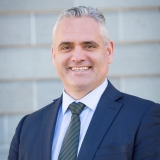
Fletcher Tabuteau - New Zealand First
Fletcher is Deputy Leader of New Zealand First and has been a list MP based in Rotorua for the past six years - three in opposition and three in government.
He is a 45-year-old father of two daughters and was previously Head of Faculty, Business Management at Waiariki Institute of Technology (Toi Oho Mai).
Fletcher has Ngati Ngararanui, Ngati Rangiwewehi and Ngati Whakaue ancestry and has lived in Rotorua for most of his life.
He is Under-Secretary to the Minister for Regional Economic Development, Under-Secretary to the Minister of Foreign Affairs, Under-Secretary for Disarmament and Arms Control as well as Deputy chairperson of the Finance and Expenditure Select Committee. He is the New Zealand First spokesperson for Associate Finance, Commerce, Revenue, Trade, Tourism, and Energy. Recently appointed to the Ministerial Taskforce for Tourism.
Favourite things to do outside of politics: I like to spend time hanging out with the family. With Foreign Affairs and Trade, and Provincial Growth Fund work, I travel a lot. I love to read. As an MP you are always reading, but at some stage, I started reading the Jack Reacher novels and found the fun in reading again. I have read all of them by the way, all the novels, novellas and short stories. Great escapism. One of my simple pleasures at the moment is searching through YouTube, listening to music, more specifically trying to find live performances of my favourite artists. Anything from Kiwi bands like Fat Freddy's Drop to Radiohead. The live versions, when someone can actually sing, just takes you away for a few minutes.
What motivated you to run in the Rotorua/Waiariki electorate?
I've always wanted to represent my home town, to do my part to make things better. I remember the bulk of the IRD and the Post Office being based here back in the day and the town was pumping.
All those well-paid jobs in our beautiful part of the world. So at the last election, I made a promise that if I got back into Parliament I would bring a ministry to Rotorua.
I am proud to be the Deputy Leader of New Zealand First who fought to revive Government departments back into the regions and the establishment of Te Uru Rākau, and so much more - this election promise has been well and truly fulfilled.
Even more so - massive investments into the Rotorua Museum, Whakarewarewa Forest and lakefront developments are all things I'm proud to have helped along during this term in government.
People seem to forget that politicians are just people who are willing to put their head above the parapet, be more than a keyboard warrior, to make a difference. For me, it was about speaking up for Rotorua and making sure I did what I could to see that New Zealand was always better than before, for everyone. There were too many have nots in Rotorua, and that is what has always motivated me.
What are your top three issues facing the Rotorua/Waiariki electorate and how would you tackle them?
Economic Development - this is the smart way to move our city forward. On behalf of Central Government, I have been and will continue to work with local council, Te Arawa, our business owners, and other stakeholders to ensure that when we do invest money into Rotorua it is in the best place to grow business activity.
Jobs – good economic development means doing things smarter, but one obvious outcome is more jobs. We need a strong focus on recovery post-Covid. The best way to do that is to carry on with what we have been doing, smart investment in infrastructure, like the lakefront and forest developments and supporting local business.
Housing – We all know that since the previous government stopped building and funding social housing as well as opening up the flood gates on immigration numbers. This made it harder for developers in Rotorua, and everywhere else in NZ, to keep up with the demand for new homes.
I am proud to say that with Government investment in the Te Ngae Rd upgrade, we have helped Ngati Whakaue to maximise their investment, with well over 1000 properties already under development. I will ensure opportunities like these continue to be supported.
What are the top three policies your party would put in place that would directly benefit the people of the Rotorua/Waiariki electorate?
New Zealand First is proud to have established the Provincial Growth Fund, we will commit to continuing this amazingly empowering programme throughout the country and here in Rotorua. It has made our regions more accessible, improved productivity, and unlocked the potential of businesses throughout the country wanting to help their regions become more prosperous.
We invested $2.6 billion into our regions, most of it actually in loans. This money will come back to the Government, unlocking the potential for more investment into Rotorua and our regions.
Part of the opportunity we have now is to upgrade and build on our Continuous Infrastructure Development programme. This not only means improved productivity and the provision of vital services that we need, but it means a massive injection of money into our economy at the time we need a stimulus package the most.
We want to make it easier, not just to build homes, but also ensure a more streamlined consent and RMA process.
What is your reaction to the Government's response to the Covid-19 crisis? What would you have done differently, if anything?
As we've seen from examples from around the world, NZ's response has been a master class.
We went hard and early, with this team of 5 million being able to get on with their lives.
But we are always keen on a safe opportunity to open up our borders, either to the Pacific, or a Trans-Tasman bubble or both.
What are your thoughts on the living wage as opposed to the minimum wage?
NZ First was the party that insisted on increasing the minimum wage to the living wage and that is why the minimum wage has been steadily going up. No other party campaigned on this issue. It is because of NZ First that we are moving now to a living wage.
What is your stance on the following?
· The cannabis referendum? Yes. The referendum was NZ First's idea to take this issue to a referendum to give the public of NZ a say.
· The End of Life Act? NZ First also insisted that this be a referendum so the people of NZ could decide. NZ First has always said on these types of conscience issues, New Zealanders should be able to decide.
· How did/would you have voted in the passing of the Abortion Legislation Act 2020? NZ First was of the view that this is another issue that needed to be decided by the people of NZ in a referendum. But because it didn't end up that way, I voted against the Bill.
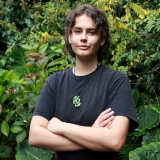
Kaya Sparke - Green Party
Kaya Sparke is Rotorua born and bred and is a 24-year-old small business owner who is standing for the Green Party for the first time. Kaya has worked in hospitality, retail, as a teacher's aid and a chef.
She is of Ngāpuhi heritage and is also a member of the Green Party executive.
Favourite things to do outside of politics:
Walk my dogs, work out at the amazing Rotovegas boxing gym, create interesting new recipes and spend time with my niece and nephews.
What motivated you to run in the Rotorua/Waiariki electorate?
After my unsuccessful bid for council in the local body elections last year, I was (strangely) still feeling in the campaign mood. I've been a long time Green Party supporter and have volunteered with them since my first election back in 2014. I thought it was time to step it up a notch and get some more political experience by actually running as a candidate. I'm passionate about Rotorua, it's my home and I know that having a green voice in government can benefit our people, not the few but the many.
What are your top three issues facing the Rotorua/Waiariki electorate and how would you tackle them?
Housing is number one. It's an issue that has been steadily getting worse for many years and will only be further affected by the fall out from Covid. Housing is a nuanced issue but the Green Party housing policy understands that and tackles it from all sides. My first step would be to support our local council to provide more social housing for the Rotorua community. I would also continue the push for legislation to ensure renters have access to secure and affordable long-term rentals.
Loss of income and job loss are going to become prevalent as we deal with the changes caused by the global pandemic. Just a few weeks ago we announced our poverty action plan which would see a guaranteed minimum income put in place for everybody in Aotearoa. This will challenge the stigma people face when seeking social assistance and ensure that nobody is going without in these challenging times. I would also help to make sure that Rotorua continues to benefit from the nature and biosecurity investment which helps create new and innovative green jobs for our people.
What are the top three policies your party would put in place that would directly benefit the people of the Rotorua/Waiariki electorate?
Firstly, our newly announced clean energy plan - it is what the future of energy in Aotearoa looks like. This plan includes training thousands of people for clean energy careers. This will benefit Rotorua through the creation of jobs in our community whilst mitigating climate change to protect our taonga for generations to come.
Honouring Te Tiriti o Waitangi is a foundational part of the Green Party and I will reflect that as your representative for Rotorua. This commitment ensures that Te Tiriti is considered across the policy spectrum. With Greens in government we will; better resource the Waitangi Tribunal including more resources for claimants to present their cases, make sure tangata whenua have partnership roles in governance including guaranteed participation in local government, support community initiatives like papakainga housing, marae-based justice, promote and support public understanding of Te Tiriti for the benefit of Māori and Pākehā alike. And so much more!
Lastly our poverty action plan, it covers a number of policy areas but first and foremost it guarantees an income for people in need. This plan actually recognises people as individuals and provides for their differing needs. This will provide secure individualised support for Rotorua's people helping them navigate through job-loss, parenthood, long term illness and more.
What is your reaction to the government's response to the Covid-19 crisis? What would you have done differently, if anything?
I think we did an excellent job in comparison with the rest of the world. Though it would have been a difficult decision to close down the economy the way they did, there were literally lives on the line so I believe it was the right decision. I do think there should have been a freeze on rents during the lockdown period, the same way people with mortgages were offered assistance. The lockdown and other alert levels also highlighted issues like overcrowded houses, domestic violence, low benefit levels and police discrimination which though not caused by the pandemic were brought more harshly to our attention because of it.
What are your thoughts on the living wage as opposed to the minimum wage?
As a living wage employer myself I am in full support of it. The premise of the minimum wage when it was brought into policy was that a sole income earner would make enough to own a home and support a family. The minimum wage and living wage should be the same thing.
What is your stance on the following;
- the cannabis referendum? Yes or no?
Yes! Don't let the stigma blind you to the science.
- the End of Life Act? Yes or no?
The bill needs work, particularly in regards to consultation with our disabled communities, but yes the right to die with dignity should absolutely be legislated.
- how did/would you have voted in the passing of the Abortion Legislation Act 2020?
Abortion care is health care and there are no two ways about it. I am in full support of the changes made to the Act. I would also suggest that people check sources when reading up on this particular issue as misinformation has been rampant.
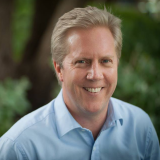
Todd McClay - National Party
Todd McClay has been the MP for Rotorua for the past 12 years, most of them for the John Key-led National government.
He is 51-years-old and lives in Rotorua with his wife and four children.
Todd has previously run a business and is a former ambassador to the European Union. He was Minister of Trade, State-Owned Enterprises, Revenue and Associate Tourism while in government. He is his party's Economic Development and Tourism spokesperson.
Favourite things to do outside of politics: Fishing, hunting, cooking and exercise.
What motivated you to run in the Rotorua electorate?
Rotorua is the best electorate in the country, full of great people, culture and an abundance of natural resources.
As the local MP, together we've achieved a number of things that have made Rotorua a great place to live, work and play. However, over the last three years, Rotorua has gone backwards.
Over the next two months, I'll be making the case a National Government will deliver more for Rotorua than we have seen under Labour in the last three years.
What are your top three issues facing your electorate?
The local economy and jobs, local roads and infrastructure and security and public safety.
Job losses and business closures are increasing by the day across New Zealand. In Rotorua, with tourism and hospitality particularly, we have been hit hard.
My number one priority is a strong local economy and creating jobs. To do that, we need a clear plan.
Investing in infrastructure projects and people, reducing red tape and unnecessary regulation and getting them off the ground will play a key role in creating jobs.
I have been a strong advocate for a four-lane highway at Te Ngae Rd and an upgrade to Ngongotaha road and the Ngongotaha roundabout. These two projects are critical to ease growing congestion and improve safety.
As National's Economic Development and Tourism spokesperson, policies to support local businesses to get back on their feet will also be a priority.
Gangs are gaining a foothold in the Bay of Plenty and local people deserve to feel safe in their homes and communities. Strong law and order policies backing the hard-working policemen and women to keep you safe are also a priority.
What is National's top three policies that benefit the people of your electorate?
A strong, growing economy with less debt, roads and local infrastructure and a return of Rotorua's rescue helicopter.
A National Government means a strong team capable of managing the economic crisis we're facing. We successfully managed the country through the Global Financial Crisis and the Canterbury and Kaikoura earthquakes.
Over the coming weeks, we'll be releasing our full plan to help get the economy moving again and get people back into work.
Among our key policies will be investing in infrastructure, reducing regulation and costs to businesses.
A commitment to not increasing taxes. We recently announced our $31 billion infrastructure plan to fix the country's transport network, including Rotorua.
For our community to thrive, we need a stronger economy and more jobs.
I also want to see the return of Rotorua's rescue helicopter which was sold during this term of the Labour government.
The next three years will be spent rebuilding New Zealand's economy. National is the safe pair of hands delivering what New Zealander's need.
What's your reaction to the government's response to the Covid-19 crisis?
The wage subsidy was important as it gave certainty to local families when they were in lockdown. National supported this, in fact, we called for it.
It also helped small businesses with employees. However, it did nothing for the levels of debt they incurred when the government closed the economy down.
As people struggle during the economic downturn, New Zealand needs a plan to get people back to work and help businesses get back on their feet.
Labour's only plan appears to be huge debt and to shovel money out the door while waiting for a vaccine. That is not a plan.
As National's Tourism spokesperson, one thing I have been calling for is more support for the tourism industry. Tourism businesses need direct cash flow and more certainty around when the trans-Tasman border might reopen safely.
This is only one of a number of issues we will need to tackle as a country moving forward and why we need a National Government this election.
National has the track record to deliver in times of economic crisis.
What are your thoughts on the living wage as opposed to the minimum wage?
The minimum wage plays an important role however, it must be balanced against what businesses can afford.
If it's increased too quickly those who earn the least can lose their jobs. The best way to grow wages is through a strong, growing and productive economy.
The needs of an 18-year-old school leaver will be different from a 30-year-old with a family to support, yet the living wage treats them the same.
What is your stance on;
- Cannabis referendum?
I don't support the Government's ill-designed Bill to legalise recreational cannabis. There are too many inconsistencies and unanswered questions in the legislation as it currently stands. For example, I'm concerned there is nothing in the legislation to control health and safety in the workplace or for drugged driving. My main concern, however, is we know the harm cannabis can cause young people. It is my view making it more available to adults ultimately means it will end up in the hands of our young people, irrespective of age limits under the law.
- The End of Life Act?
This has been a topic of strong debate and I appreciate the huge range of views people hold on this matter. However, I have real concerns about the scope and the definition outlined in the legislation. I consulted widely in the community about these concerns and based on that I decided not to support it.
- How did you vote on the Abortion Legislation Act 2020?
Abortion should be removed from the Crimes Act. However, I have concerns about the scope of the Government's changes including their approach to late-term terminations. For this reason, I did not support the bill.
Waiariki Electorate
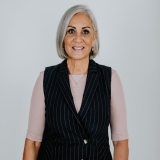
Hannah Tamaki - Vision New Zealand
Hannah Radclavina Huirangi Tamaki is the leader of the newly formed Vision New Zealand Party and is a senior minister for Destiny Church, a business owner, wedding celebrant and JP.
The 59-year-old's whakapapa is of Ngati Maniapoto and Ngati Pikiao ancestry and she spends about 60 per cent of her time living in Auckland and the rest in Rotorua.
Favourite things to do outside politics:
Time spent at home with grandchildren and great-grandchildren, gardening, time with friends and family, travelling.
What motivated you to run in the Rotorua/Waiariki Electorate?
We have had a deep connection with Rotorua since 1990. This is where our journey as a family began with the now-famous Tamaki Tours and our church ministry really took off.
Rotorua is a beautiful city, Brian I have sown into the city, community and families of Rotorua, Tauranga, Whakatane and Taupo. Many of the people that have walked the journey with us these last 30 years came from these cities.
I have functioned in a position of oversight for the churches in these areas since 1990. I love this area and because I am here so often it made sense that I would represent the people of this district as a candidate for Waiariki.
Top three Issues facing Rotorua and Waiariki:
Homelessness – invest in a rehabilitation facility and programme to support these people off the street and back into the community as contributors.
Tourism – invest in locals
Iwi Bank – interest-free loans for first homeowners
Response to Covid:
There are many things the Government has done well during Covid and there are several things I would do differently.
Close the Border. Sooner and permanently for at least 12 months, taking advantage of our geographic position and natural distance from the rest of the world.
Consulted with the public in a democratic manner before passing Covid-19 Public Health Resource Bill and those elements of the bill that targeted Maori and religious communities.
Invested in our post-Covid-19 future by not just giving handouts or work opportunities i.e. shovel ready projects, but investing more into the future of small to medium businesses.
Living Wage as Opposed to Minimum Wage:
There are approximately 478,602 small business in New Zealand employing 30 per cent of the working population. If they are going to be able to afford the Living Wage for all their employees we have to cut them some slack and cut compliance costs so that they can do this.
What is your stance on the following;
Cannabis referendum – No
End of Life Choice Bill – No
Abortion Legislation Act – No

Tamati Coffey - Labour Party
Tamati Coffey is the MP for Waiariki after winning the electorate at the last election.
He is a 40-year-old father of one boy, Tutanekai, and he and his partner live in Rotorua and run hospitality businesses in the city. Tamati is a former broadcaster and has Tuhourangi/Ngati Wahiao, Ngati Whakaue, Ngai Te Rangi and Ngati Tuwharetoa ancestry.
He is chairperson of the Labour Party Economic Development Caucus Committee and chairperson of the Labour Party Rainbow Caucus.
Favourite things to do outside of politics:
Watch my son learn and grow.
What motivated you to run in the Rotorua/Waiariki electorate?
Rotorua is my home and whakapapa connects me all around the Waiariki electorate. The people are what makes our region great.
What are your top three issues facing the Rotorua/Waiariki electorate and how would you tackle them?
Keeping our people employed, continuing the rebuild of our previously neglected health services to be ready for whatever is next, and addressing inequality in areas like housing highlighted by Covid-19, are key to the strengthened recovery of our community.
This coalition Government's plan is working, Labour has the leadership and I will continue to be a strong voice in Parliament, highlighting the local recovery issues facing our communities and iwi. Now is not the time to risk all we've gained through change.
What are the top three policies your party would put in place that would directly benefit the people of the Rotorua/Waiariki electorate?
Labour has consciously decided not to release election policy yet, as our focus remains empowering the recovery of our regions from Covid-19. However, while we were in a coalition Government, the Waiariki saw the Winter Energy Payment launch, more housing options open, community investment strengthen community partnerships, and free lunches in schools start. These examples highlight areas I feel best represent the types of positive change Labour will be looking to continue, once we have been honoured by Māori and the wider Rotorua community with their vote.
What is your reaction to the government's response to the Covid-19 crisis? What would you have done differently, if anything?
While there is no playbook on how to handle a global pandemic, this Government's response prioritised the health of our families and protecting jobs as best we can – and we've delivered. Through strong policies and proven leadership, we have backed the team of 5-million to get through together, strengthened community/Māori-led solutions to various challenges, keep Covid at the borders, and became one of the few countries in the world to already be safely enjoying an open domestic economy. The mahi isn't over and we are learning fast – but the results speak for themselves.
What are your thoughts on the living wage as opposed to the minimum wage?
As both a living wage employer and MP, I strongly advocate for all kaimahi to receive a decent day's pay for a decent day's work, so that we can break the cycle of intergenerational poverty in our families. While the gap between these two ‘wages' that we inherited was heart-breaking, I'm proud that this Government has considerably closed the divide, increasing the minimum wage every April 1st we've been in office towards a fairer and more liveable standard.
What is your stance on the following;
- The cannabis referendum? Yes.
- The End of Life Act? Yes.
- How did you vote in the passing of the Abortion Legislation Act 2020? Yes. I believe wholeheartedly in a woman's right to choose – even if it could be the most traumatic decision that a woman might ever have to make.
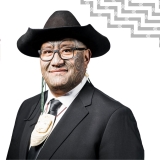
Rawiri Waititi - Maori Party
Rawiri is a 39-year-old husband and father of five children whose whakapapa is Te Whānau a Apanui, Ngaitai, Te Whakatōhea, Ngāti Awa, Tūhoe, Te Arawa, Ngai Te Rangi and Tūwharetoa.
Rawiri lives at Whangaparāoa and is running for the Maori Party this election after running for Labour in the last election.
Rawiri has extensive experience across many sectors including education, health and social services, Whānau Ora, Māori performing and creative arts, marine and coastal claims, Treaty negotiations, resource management and iwi relationships.
Favourite things to do outside of politics: I'm an undies diver, kumara growing, bang the bell for karakia, whaikōrero at the marae, tighthead prop, run the ball up the guts, have a beer with you after the game, iwi politicking 39-year-old father of 5, husband, son, mokopuna, brother, uncle, nephew and mate.
What motivated you to run in the Waiariki electorate?
I am determined to be part of the restoration of the negative narrative dominating our lives to a narrative that sees our people as prosperous, thriving in health, in economy and cultural identity. I want more than anything for our babies to grow up in a country where their mother tongue is not foreign, where stolen babies, stolen lands and stolen water aren't headline news; where gangs and meth aren't the only options, where their parents aren't filling our prisons, where their brothers and cousins aren't killing themselves and where unemployment isn't normal. We are so much more than those headlines. Moreso, I am determined to be part of the restoration of our soul as a people; so we can dream again and believe in ourselves again to be the author of our own story.
We can no longer enable governments to continue to assert their right to determine solutions for us. They fail us time and time again. They fail because we allow them to believe they are our saviours. They fail because they are not Māori.
Māori MP's in other parties are at the mercy of a Pākeha agenda. They cannot move unless their Pākeha master gives permission. I have first-hand experience of that as I was once part of the Labour machine when I ran for the Waiariki seat in 2014.
It was oppressive and soul-destroying. So, I got out quick smart. The Māori Party is the only party that is free, unapologetically, to speak on behalf of and fight for the rights of Māori. We are two nations living in one country. We are indigenous, everyone else is not. That, by right, affords Māori equal footing at any table that is determining our future.
What are your top three issues facing the Waiariki electorate and how would you tackle them?
I often get asked to talk to the most pressing issues facing our electorate. We don't have the luxury of choosing three main issues because every issue is interconnected. And so, every issue is a priority. We must challenge every sector. We must disrupt the education system that is designed to keep us dumb, the health system that keeps us sick, the justice system that keeps us incarcerated, the economic system that keeps us poor, the business sector that pollutes our environment, the Ministry for Children that steals our babies, the housing sector that keeps us homeless and the laws that denigrate our language and culture. Our people have suffered tremendous intergenerational trauma and as a result, alcohol and substance abuse, domestic violence, suicide, incarceration and child uplifts are what we are measured against.
What are the top three policies your party would put in place that would directly benefit the people of the Rotorua/Waiariki electorate?
We do not have the luxury of choosing three main issues and so our approach to wellbeing must be interconnected and holistic.
The good news is that the Māori Party's polices intend to do just that; present an interconnected and holistic approach that transforms the system and addresses immediate needs at the same time. We have released our first three policies; Whānau First, our Freshwater Policy and our Climate Policy with more to come in the coming weeks.
Whānau First is a policy that intends to end the effects of discrimination against Māori in this country. It secures 25% of post-Covid funding ($5 billion) for Māori over the next two years. This means that 25% of any government contract, project or initiative post-Covid goes directly to Māori contractors, businesses, organisations, hapū and iwi to design and lead. It also means 25% of the workforce for these projects must be Māori.
Our Freshwater policy will overturn the Crown's position that 'everyone owns the water” and adopt a position that acknowledges Māori proprietary, customary and decision-making rights and interests to freshwater.
Our Climate policy will ban new oil and gas permits and withdraw existing onshore and offshore permits within five years. It will establish a dedicated fund for Māori owned community energy projects and create incentives for Māori farmers to transition to regenerative farming practices.
My focus for Waiariki will be centred on championing Māori creativity, innovation and business, championing Whānau Ora as the solution to our mental health and justice statistics, affordable and accessible housing, the restoration and protection of our ngāhere and our wai, relinquishing power and resource back to communities and building the capability and capacity to deliver our solutions our way.
What is your reaction to the government's response to the Covid-19 crisis? What would you have done differently, if anything?
The Māori response to Covid-19 was exemplary – it happened organically, autonomously and without permission from the government. We demand the opportunity to do this again, with equal resource, for ourselves, outside of the context of a pandemic, in the name of our future.
What is your stance on;
Cannabis referendum? No
The Māori Party does not support the referendum in its current form but supports the decriminalisation. The Māori Party asserts that cannabis abuse be treated as a health issue and that we need time and resource to build capacity and capability to address the impact cannabis abuse has on our whānau. The Māori Party also asserts that Māori must be central in designing the regulatory model for cannabis in the future.
End of Life Act? No
The Māori Party does not have the luxury of indulging in a conversation about integrity in death when Maori are not yet afforded integrity in life.
Mā wai rā e haramai ki te tiki I tō moko – e kore e riro I a taua – me waiho ake ma Hinenui-te-po.

